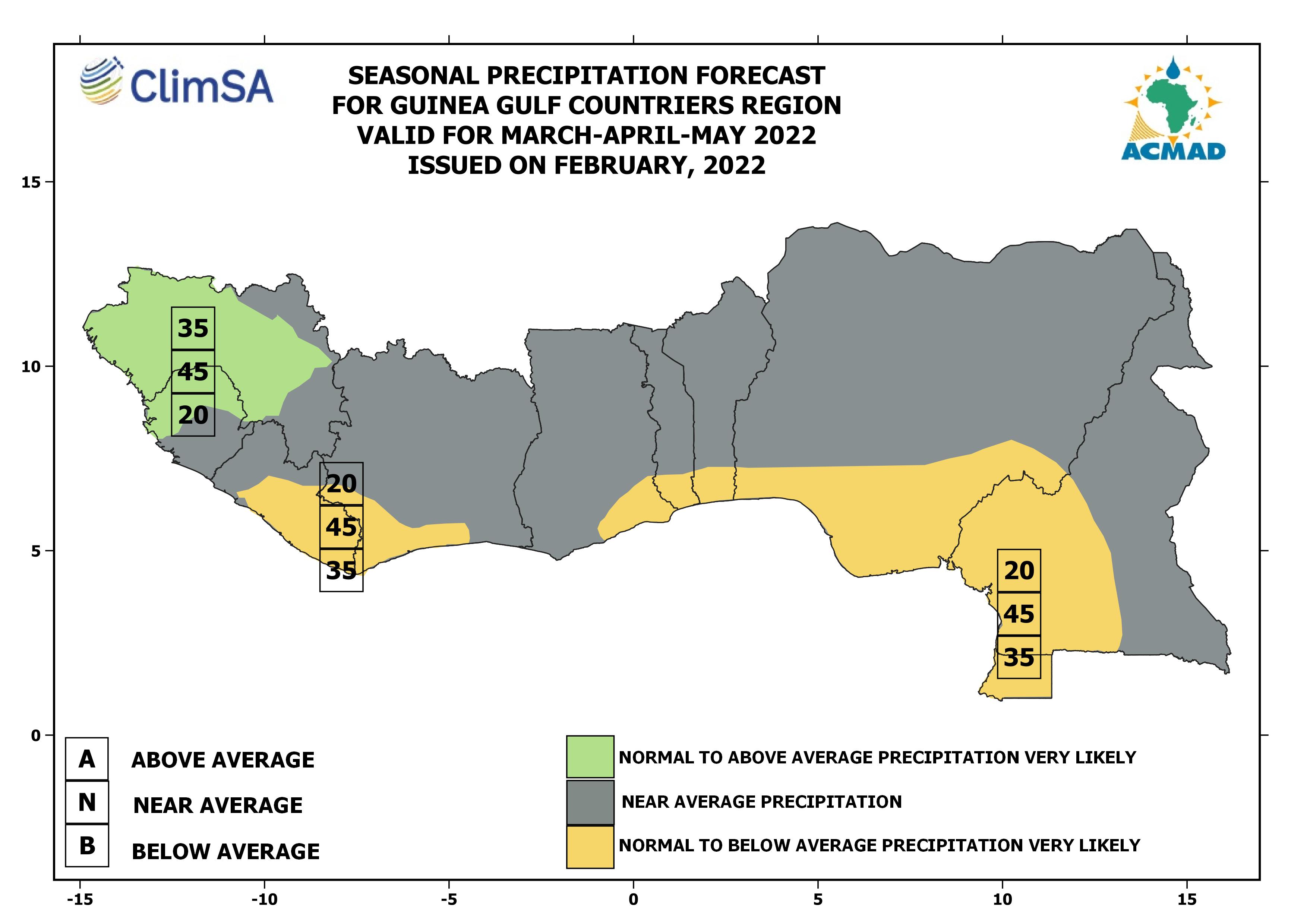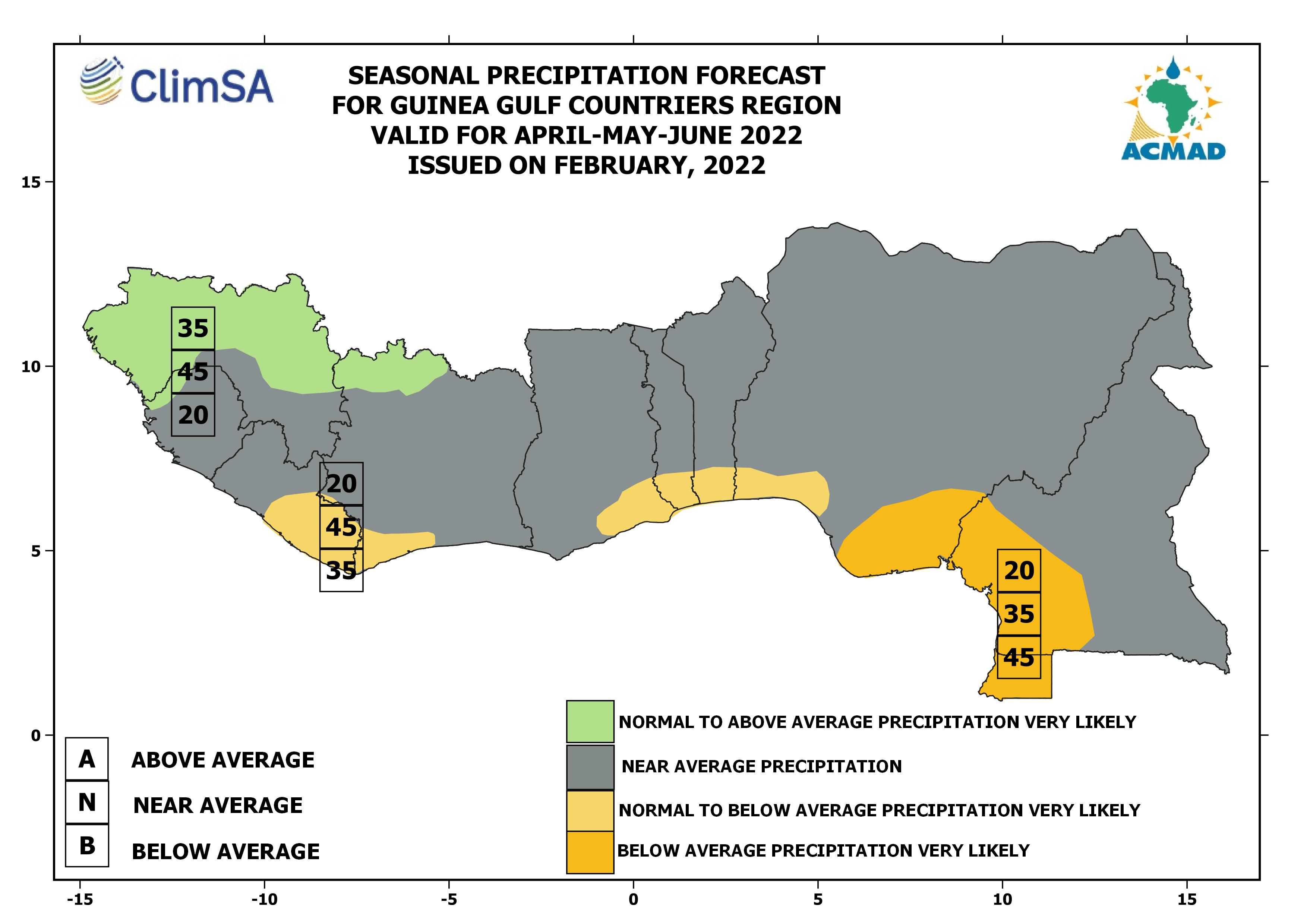Email: dgacmad@acmad.ne/dgacmad@acmad.org site web: www.acmad.net
This region typically covers the Coastal Atlantic region of West and Central Africa including Guinea-Conakry, Liberia, Sierra-Leone, Côte d’Ivoire, Ghana, Nigeria, Togo, Benin, Cameroon and Equatorial Guinea. The regional climate is dominated by the InterTropical Convergence Zone (ITCZ) and the African monsoon with March-April-May as the main target season.
Major sources of seasonal climate variability and predictability in the region include Sea Surface Temperatures (SSTs) of the equatorial Pacific (ENSO region), tropical northern and southern Atlantic as well as the Equatorial Atlantic. Uncertainties on SST forecasts over the equatorial and tropical Atlantic, understanding and prediction of processes and phenomena embedded in the ITCZ and the African monsoon during the target season are not well documented.
Improvement of understanding and representation of processes and interactions in models are required to provide better inputs to operational seasonal prediction for the region.
Dry and wet spells, strong winds and heavy rains, anomalous onset of the rains are the main climate hazards of the region. Disruptions on the planting periods, damages to infrastructure ( eg. roads, electricity distribution systems,…) due to heavy rains and storms are noted over the area..The RCOF
The RCOF started in 2014. It is held once a year usually in late February or early March with March-April-May as the main target season. It involves the 10 countries mentioned above. NMHSs of the region, WMO Global Producing Centres for Long Range Forecasts are the major collaborating partners..
 |
 |
Figure : Seasonal Precipitation forecasts for the Gulf of Guinea Countries |
The approach involves assessment of outputs from global single and multimodel ensemble forecasting systems, statistical seasonal forecasting tools, analogue years, persistence, composites and trends analysis as well as available findings from climate studies at local, national, regional and global levels. The assessment made is discussed during a briefing and a consensus outlook generated for users.
The African centre for Meteorological Applications for Development (ACMAD) is the main coordinating institution.
Contact details: African Center of Meteorological Applications for Development , ACMAD, 55, Avenue des Ministères, PL6, BP 13184, 1er Arrondissement, Niamey Plateau, Niger, Tél: (+227) 20734992; Fax: (+227) 20723627.
Email: climat@acmad.org, website:http:// www.acmad.org/rcc
User involvement
Users from agriculture, water, disaster management and media communities are invited to the forum for exchanges, interactive discussions on the historical, current and expected climate conditions, related impacts, advices and recommendations to cope with negative impacts or increase benefits linked to possible opportunities due to favorable climate conditions.
|
Way forward
Scientific research on ocean-land-atmosphere modeling, new predictors for statistical forecasting tools, local and regional climate variability and trends studies, assessment of regional performance of forecasting systems including their strengths and weaknesses in predicting regional climate features are proposed to improve consensus outlook products. Substantial effort is needed to study March-April-May climate in the region.
Specifically better understanding and prediction of the Gulf of Guinea and tropical Atlantic SSTs, their interactions with land and the atmosphere are required. Studies of climate variability and predictability with a focus on the African monsoon and the ITCZ during March-April-May season are needed.Download the outlook bulletin PRESAGG-08 , Press release , Recommandations
Archives the Outlook Bulletin PRESAGG